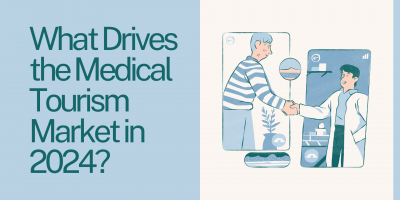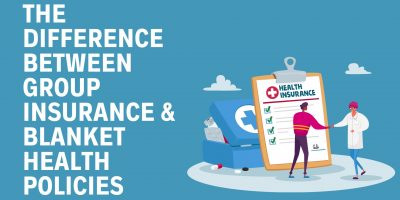
Can Fertility Benefits Boost Employee Recruitment?
Can fertility benefits become a recruiting and retention magnet in the ever-evolving workplace landscape?

Navigating the complex healthcare system can be overwhelming with countless doctors, healthcare facilities, and treatment plans to choose from. Employees find it easier to avoid all healthcare altogether than navigate the confusing network.
Employers and insurers recognized and addressed the need for an improved consumer experience, so health advocacy programs were created from this demand.
Health advocacy programs provide a direct, single-contact solution to employees and their family members for all their medical and healthcare needs. Health advocacy programs guide and link employees to suitable, cost-efficient providers for their requirements.
Health navigators, concierge service, care coordination, and direct primary care are interchangeably used to describe health advocacy programs.
Although the term may vary, the goal is always the same- empower healthcare consumers to be active participants in their own care.
Health advocacy goes beyond good customer service- it is about becoming true advocates on behalf of the participants and giving them one-on-one assistance in their most difficult and vulnerable times.
When employees are going through a health crisis, they have someone to depend on, to hold their hand through their healthcare journey.

There is a wide range of available services offered by health navigators.
From basic help like getting a second opinion about certain procedures, to extensive employee disease management and care coordination. Typically, each employer will customize their advocacy program and design it to be compatible with their existing health plan.
Some of the commonly offered services are:
By offering patient-centered care, health advocacy programs help consumers get the most streamlined and enhanced health care experience at the lowest cost.

Many employers feel their employees do not have a good grasp and understanding of their benefits. Most employers know their employees might be struggling to get access to good medical care.
An employer who addresses these concerning issues and attempts to help employees by providing the tools and resources to empower and support them will benefit from it.
Instead of calling different providers and creating more confusion and frustration, employees feel motivated and driven to engage in their health and well-being when they know they only need to reach out to their personally assigned advocate to get all the answers they need.
When health navigators guide individuals to the right programs at the right time, it significantly drives engagement and satisfaction.
This promotion of health will have numerous returns for the employer. When employees utilize their health and wellness benefit the result is reduced absenteeism, improved health outcomes, and lower costs. The goal is improved the health and lives of the consumer, which benefits everyone, the consumer, the provider, and the employer.
Overwhelming, frustrating, and expensive are words often used to describe the healthcare system.
There is a growing number of employees seeing the value of being supported and guided by a professional in the medical landscape.
Employers are recognizing the benefits of providing a health advocate who can cater to both employers’ needs and healthcare consumers. Employers that are slower to embrace this program risk losing out on many potential benefits.
Browse our curated list of vendors to find the best solution for your needs.
Subscribe to our newsletter for the latest trends, expert tips, and workplace insights!

Can fertility benefits become a recruiting and retention magnet in the ever-evolving workplace landscape?

What compels someone to travel halfway around the world for a hip replacement or cancer therapy?

Explore the difference between group insurance and blanket health policies to help you choose the right insurance plan for your organization.

In times of high economic uncertainty and an increasing cost of living, employers should ensure the well-being of their workers without hurting the business’s prosperity. The question is – how can they do this?
Used by most of the top employee benefits consultants in the US, Shortlister is where you can find, research and select HR and benefits vendors for your clients.
Shortlister helps you reach your ideal prospects. Claim your free account to control your message and receive employer, consultant and health plan leads.